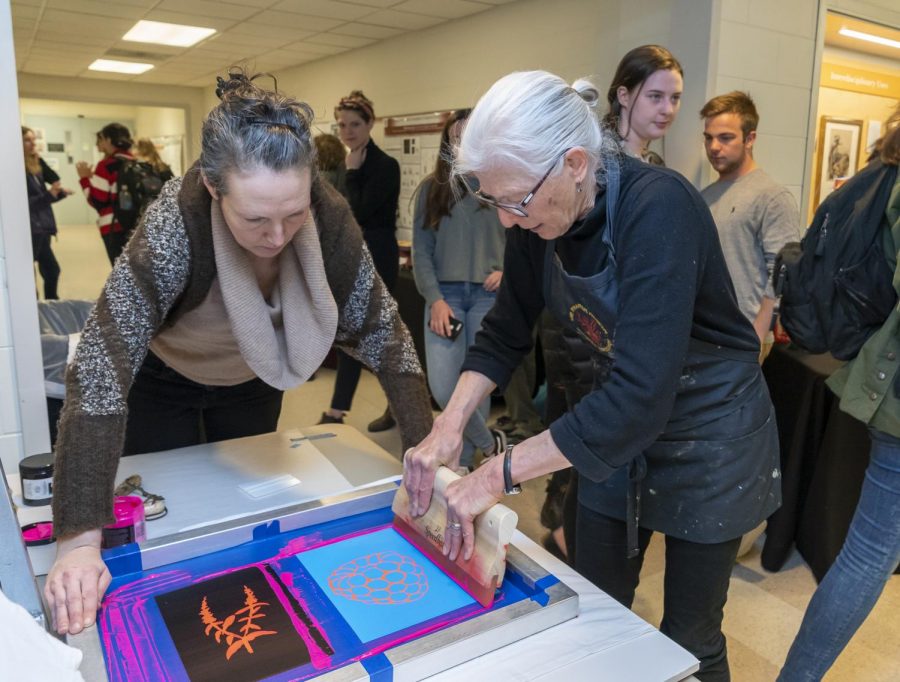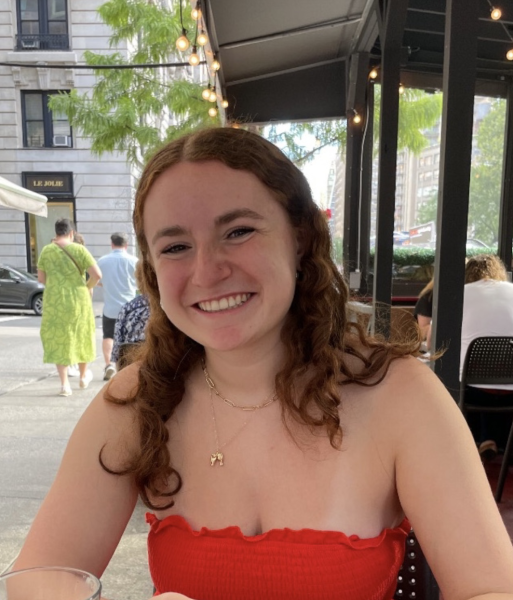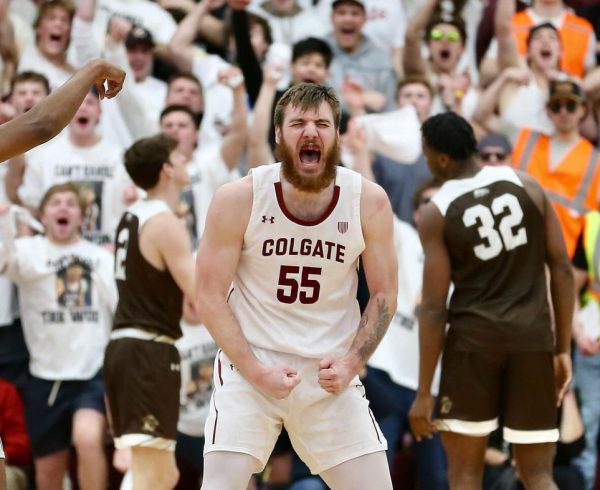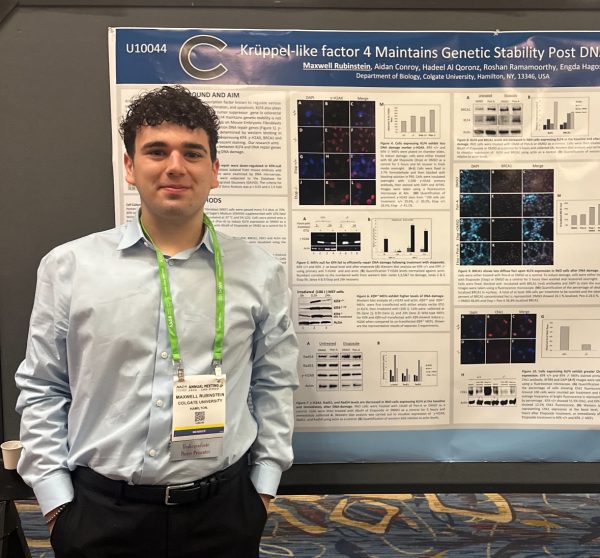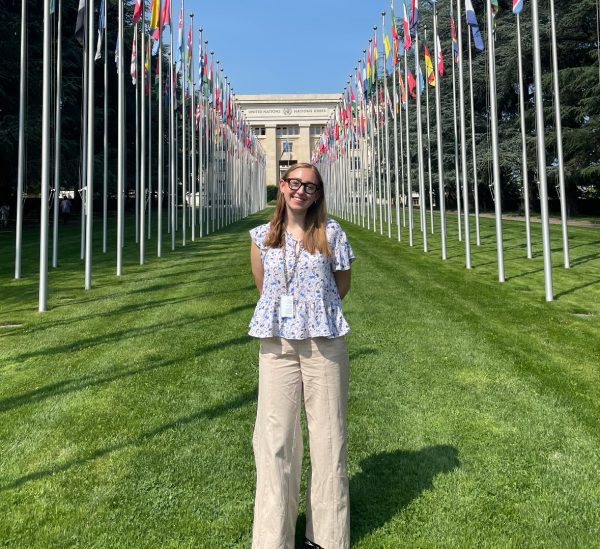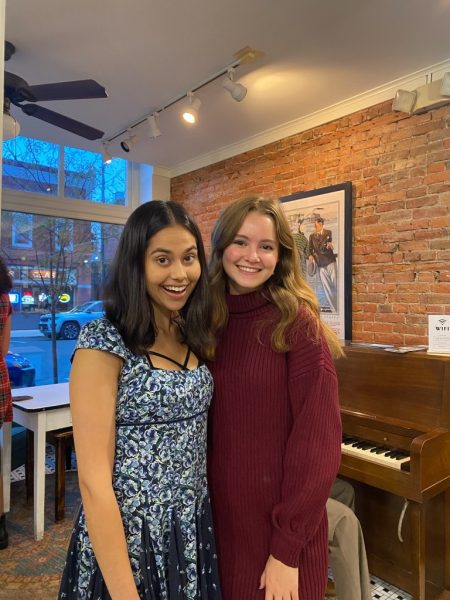Baker’s Dozen: Lynn Schwarzer
Lynn Schwarzer sat in her office surrounded by shelves of trinkets, an archive of objects that have found their way to her through gifting or encounter: a rotary phone, a blue and white clown, a Chinese war medal.
“They’re a combination of things that might be interesting to draw and things I can’t quite part with,” Schwarzer said. “Things I can’t quite send back to be recycled in the entropic system.”
Not only is Schwarzer an Art and Art History professor at Colgate, she is also the Director of the Upstate Institute, which allows Colgate to promote and understand the network of cultural, economic and environmental resources of the larger upstate region. Founded in 2003, The Upstate Institute is comprised of a Community and a Colgate Board that enables students and community partners to do research projects, assist in health services, work in local museums and more. Schwarzer has sat on Colgate’s board for six years and has been director for the last two. Colgate’s board is comprised of both faculty and staff.
“That cross section doesn’t always happen on campus. I think it’s really furtive and unique. I think that’s what makes the Upstate Institute special is being able to take expertise through all of Colgate’s channels.”
As an artist, Schwarzer is able to bring her own unique set of expertise to the Upstate Institute and the projects they take on.
“In my studio practice, I’m interested in making work that can communicate with the general public. I’m not interested in making things that feel exclusive or that you need a special set of knowledge to ascertain. I look at the ways that I as an artist can have a through-line that’s slightly different from others with intellectual or scholarly approaches.”
Taking on projects requires both an open mind and full pockets.
“It means learning from the community and being thoughtful with what the community can benefit from. Then putting your money where your mouth is and being there for different projects that need to be supported,” Schwarzer said.


